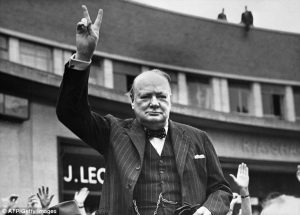Elite’s Power, and Interests in Britain
For the first part of the nineteenth century the national political rulers were drawn exclusively from the landed class the City fraction of the commercial class, with the manufacturers and provincial merchants pursuing their interests in the towns and cities. It was in the middle of the century that the old partisan style of national politics began to break down as the changing balance of power within the privileged classes led to changes in the composition of the political leadership. The paradoxical situation which existed in 1819 has been summarised by Halevy in the following terms: “It was the Tories…who secured the triumph of the old Whig doctrine of supremacy of parliament… It was the leaders of the Whig opposition who… were battering to pieces the old edifice of Whig aristocracy.”16 It could be said that the Tory’s policy was essentially a negative protection of the established social order. The changing balance of power between the landed class and the manufacturing class meant that some economic reforms were eventually forced on the government. “But the pace of economic reforms was not as the manufacturers wanted. It was not until the change of government in 1830 that this changed. The Whig government, faced with the tension between maintaining the political power of the landed class and satisfying their commercial and manufacturing supporters, speeded up the move towards a laissez-faire, facililative state.”17
The dominant form of representation until 1860 was, as some call it, ‘elitism’, a system of representation in which the interests of a privileged social class are mediated through their position as a dominant status group. The notion of the gentleman in the early nineteenth century was the means through which the landed class defined itself as the natural rulers of society. “Landowners regarded themselves as having a right, indeed an obligation, to exercise such power and to speak on behalf of those who were not entitled or competent to participate in the exercise of political power.”18 But from the 1840’s a rival principle of ‘electoralism’ became more and more significant. Those who were elected to decision-making positions in the state were to represent the interests of those who elected them. Politics was to be based on an open and critical dialogue in the ‘public sphere’, where public opinion could be formed and decisions arrived at. Parliament and parliamentary elections were at the centre of this public sphere. Between the 1840’s to the 1860’s, a period of confrontation among elitist and electoral principles of political representation took place. However, the outcome was not just the replacement of elitism by electoralism. It was that the landed class had to come to a compromise with the manufacturing class, and the structure of political representation reflected the nature of this compromise.
Within this format of political representation the rival party groups of Whigs and Tories competed with one another for the support of privileged classes. The Tories depended on most landowners and formers, together with support from the colonial and shipping interests and those attached to the established Church. “In short, the Tories were supported by all those elements which considered it necessary to safeguard their interests against the necessary results of modern manufacturing industry.”19 The Whigs were also drawn from the landed class, but attempted to articulate the interests of the manufacturers and commercial classes. “The emergence of electoralism involved an important transformation of the political system as the mode of political representation gradually came to reflect the changing balance of power among the privileged classes. But the old elitist pattern was modified rather than destroyed. The landed class remained an important social force and endeavoured to continue its strategy of compromise with the manufacturing class. The patrician oligarchy adapted to the party system by containing it within the shell of the elite mode of representation.”20 The result was that since the last third of the nineteenth century an ‘establishment’ based on a more formal method of operation has been in Britain.



